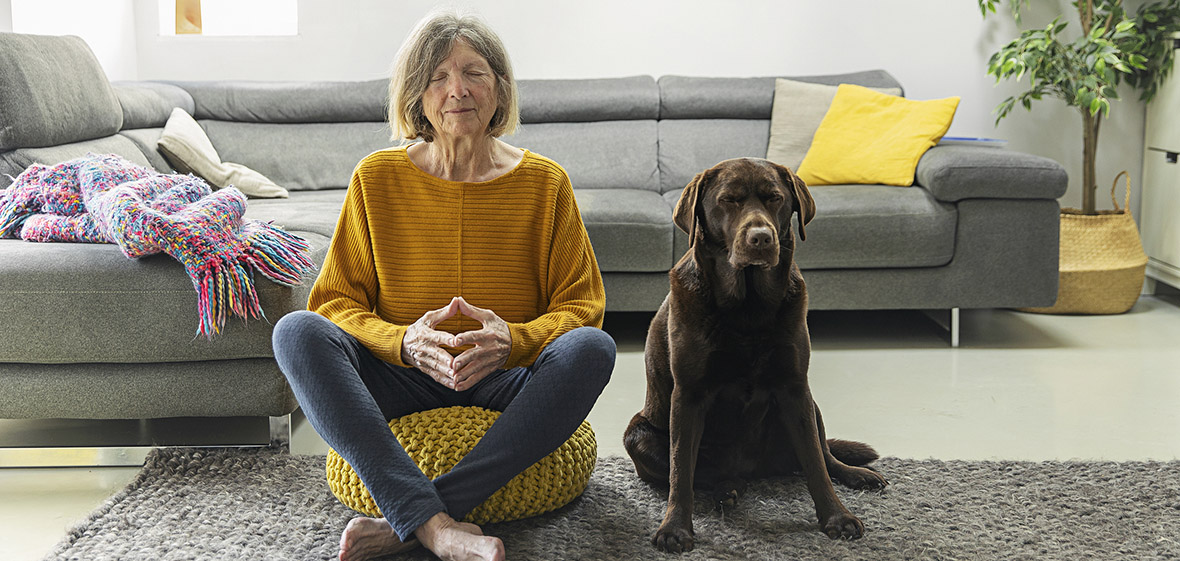
One in six people around the globe will be at least 60 years old by 2030, according to the World Health Organization. Older adults are valuable members of society, and many are active in the communities in which they live.
While some older adults have great health, almost 15% of older adults have anxiety, depression and other mental health disorders. Mental health concerns such as depression could lead to suicide: More than 25% of suicide deaths are among people at least 60 years old.
What Are the Risk Factors?
Older adults are more likely to experience mental health issues if they are:
- Dealing with lifetime trauma or adversity
- Experiencing declining health or ability to engage in activities they enjoy
- Experiencing the loss of a loved one
- Dealing with financial problems
- Experiencing a lack of purpose
- Experiencing discrimination
- Socially isolated
- Abused
- Caring for a spouse or a family member with a health condition
- Living in an unsafe environment
- Lacking access to resources
- Dealing with substance abuse issues
How Can Older Adults Have Better Mental Health?
One key to improving mental health in older adults is focusing on optimal aging, which is a concept centered on making sure older adults can flourish and live their best lives every day in the face of challenges. Optimal aging is a personal sense of “living life well” and a combination of feeling good and functioning effectively.
The following can help older adults age optimally:
- Participating in social or health programs
- Eating nutritious food
- Exercising regularly
- Not using alcohol or tobacco products
- Participating in programs that can help them get accessible, safe and affordable transportation and housing
- Receiving financial resources if needed
Another key to older adults’ mental health is having opportunities to engage socially with others. Talking to and spending time with other people reduces feelings of loneliness, isolation and social anxiety. Social activities can improve older adults’ quality of life and reduce the severity of depression.
The following can help older adults build social connections:
- Volunteering in their community, or signing up to be served by a volunteer
- Joining a club or organization focused on an interest, such as creative arts, birdwatching, exercising, etc.
- Joining a support group or getting involved in a religious organization
- Reaching out to friends and family
For older adults who have mental health conditions, treatment should be long term and focused on allowing them to thrive in their community as much as possible.
If you care for an older adult, it is important that you have optimal mental health also by participating in therapy, getting financial support, using respite care and taking advantage of educational resources. The older adult you are caring for can recognize when you are stressed, irritated or overwhelmed. When you have good mental health, it will be easier for you to maintain and build a strong relationship with the person you are caring for.
Key Hotlines
- 988 Suicide and Crisis Lifeline
- Veterans Crisis Line: Call 988 and press 1 or text 838255
- Disaster Distress Hotline: 800-985-5990
Help is Available
With proper treatment, many older adults with anxiety, depression and other mental health conditions may have their symptoms and functioning improved and live better lives. UofL Health – Peace Hospital can be reached at 502-451-3333 for a no-cost level-of-care assessment and assistance with treatment options.
The University of Louisville Trager Institute/Republic Bank Foundation Optimal Aging Clinic provides wellness and lifestyle services, mental health support, resources about dementia and brain health and more. To request an appointment or learn more about services offered, call 502-588-4340.









